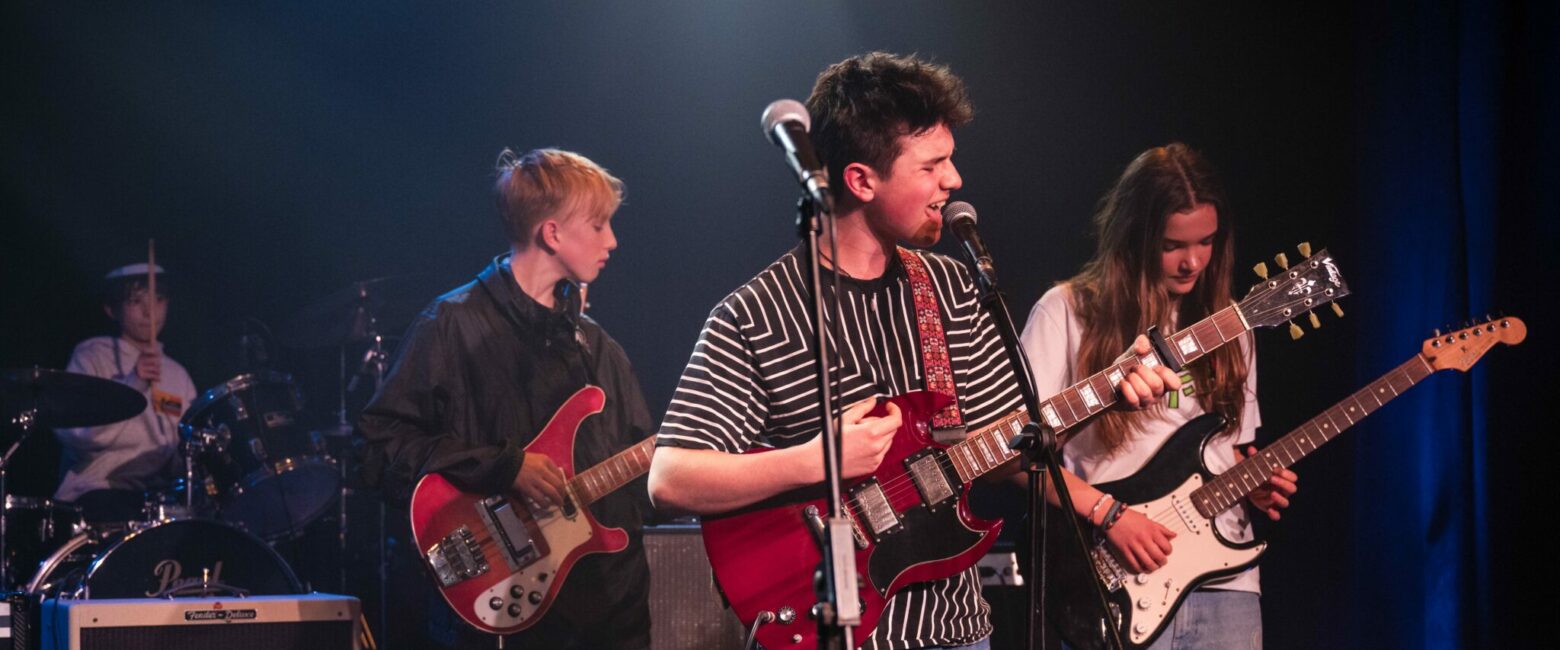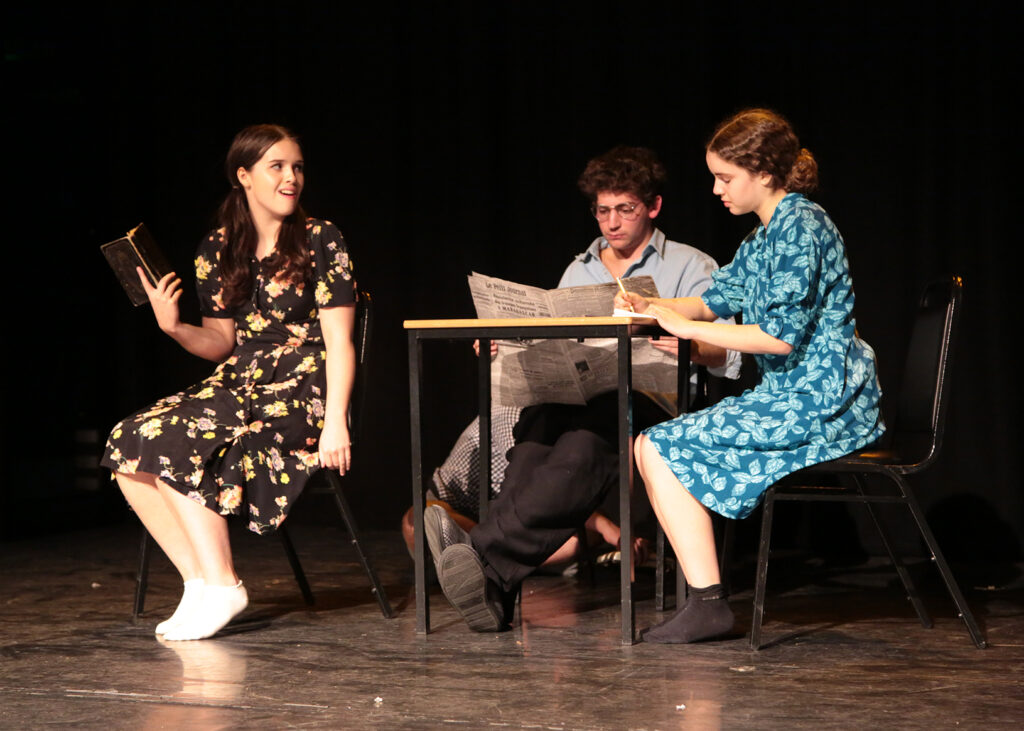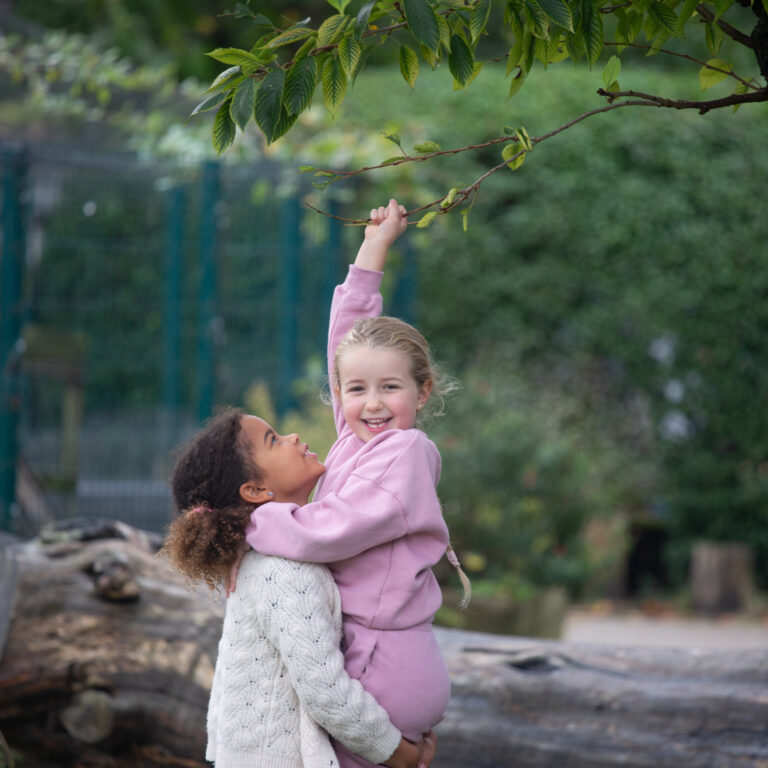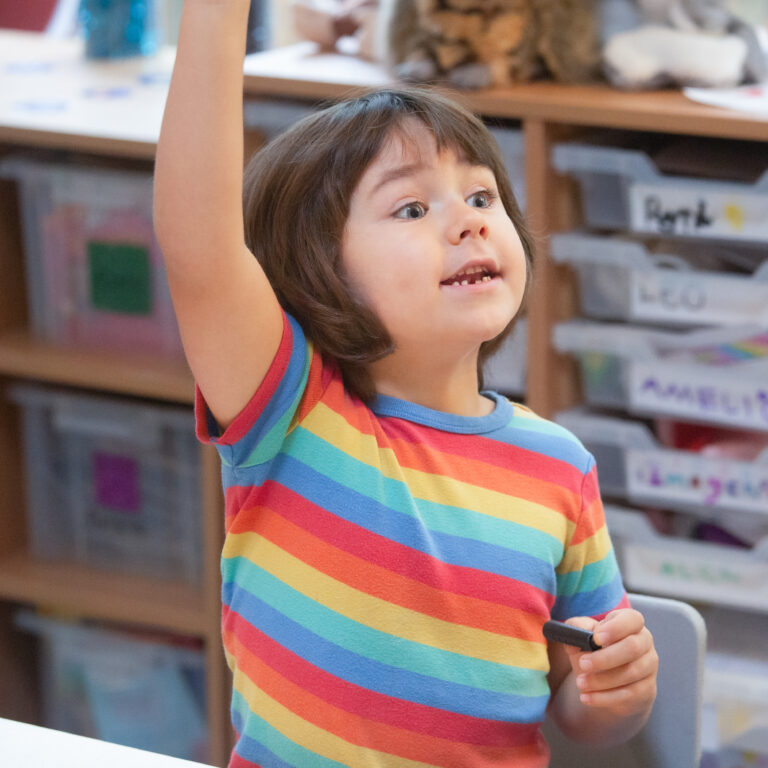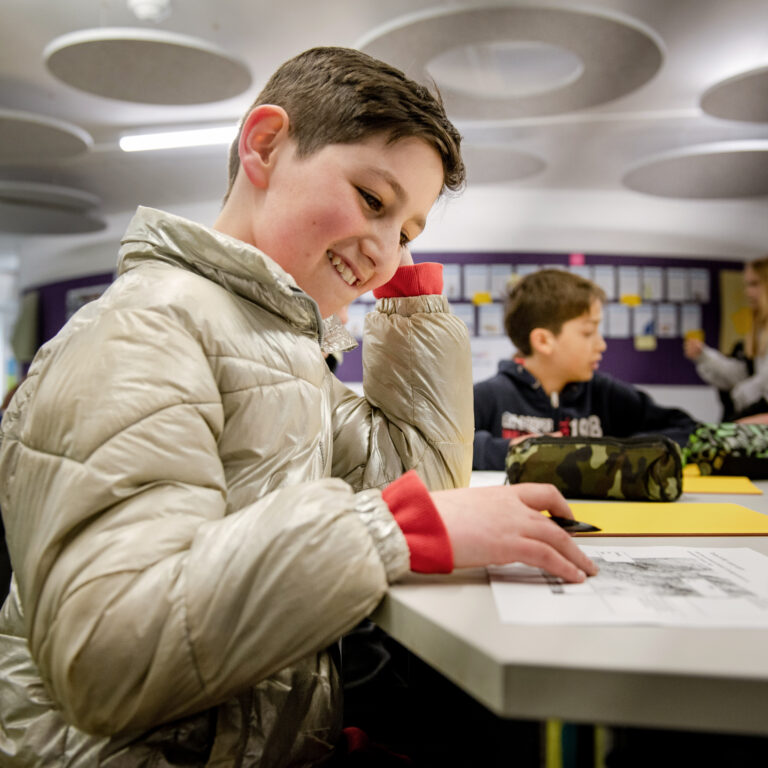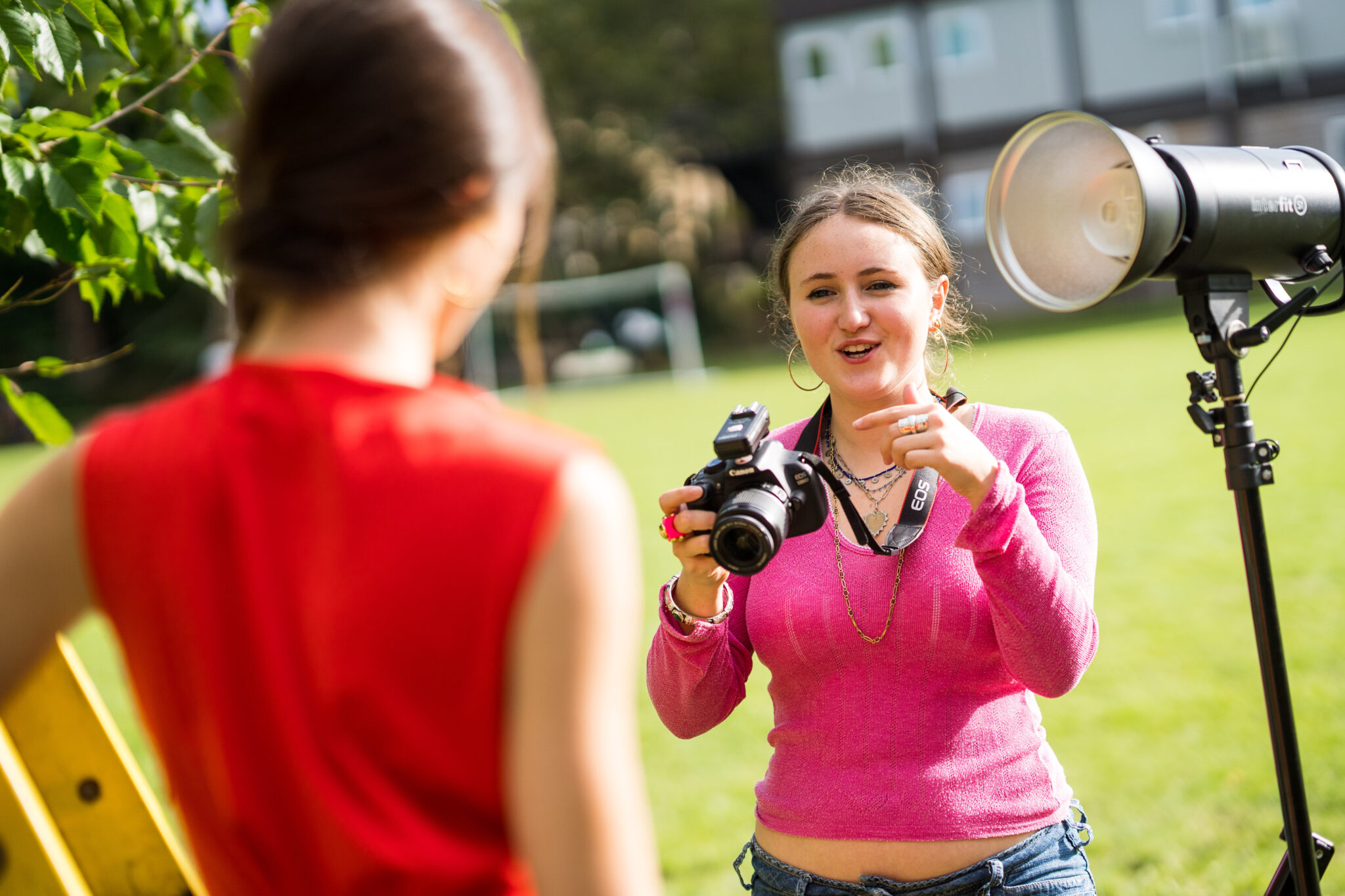Spotlight on: Modern Foreign Languages
13th May 25
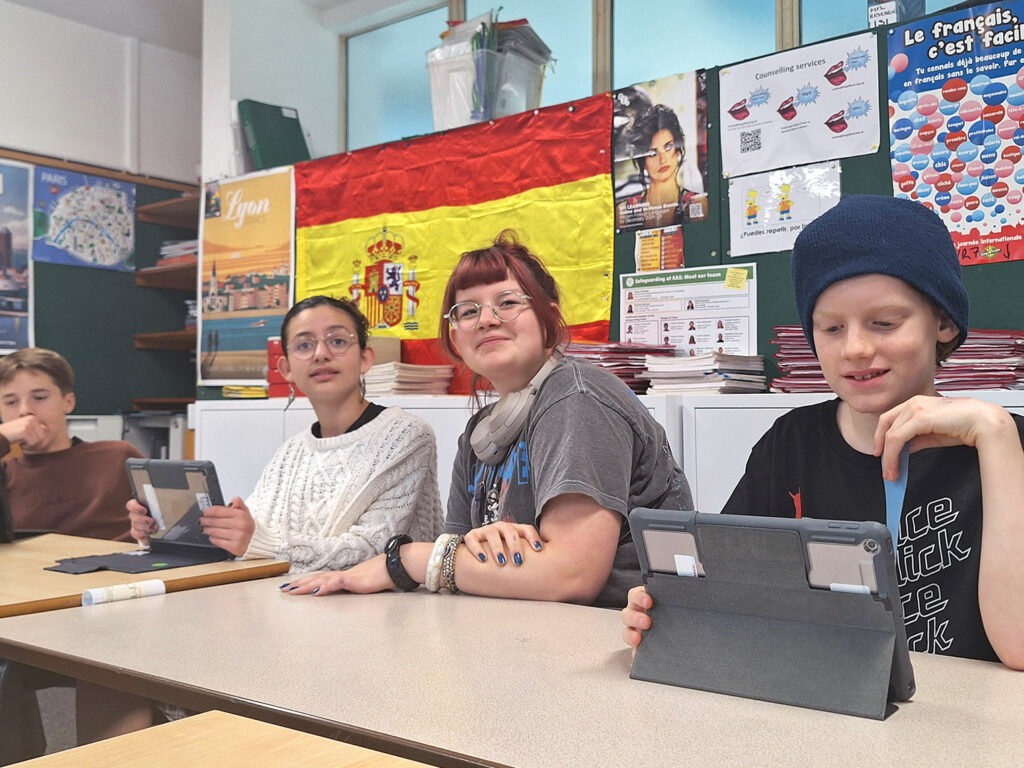
The vibrant Modern Foreign Languages (MFL) department at The King Alfred School allows students to learn French and Spanish. In the spirit of the school’s philosophy, our MFL provision also offers many opportunities for deeper learning and personal development.
French is taught from Reception (ages 4-5), and language lessons continue to be core to the KAS curriculum until Year 8 (ages 12-13). From Year 9 onwards, students can elect to study either or both languages at GCSE and A level.
“We keep learning interesting by using a range of interactive resources, such as books, films, music and news articles,” says Camilla Parsons, Head of Modern Foreign Languages. “Yes, there are translations and grammar to learn, but it’s also about helping students to become good global citizens who can empathise with the experiences of people in different countries.”
Broadening horizons
Multi-discipline learning
“Where possible, we draw on different academic subjects to enhance learning,” says Véronique Bruel, who teaches French and Spanish. “For example, we might discuss how the Roman invasion influenced French architecture.”
Meanwhile, a recent project saw Year 8 research different Spanish-speaking countries through a geographer’s lens, creating colourful classroom displays on aspects including their capital cities, national dishes, key economic industries and cultural traditions.
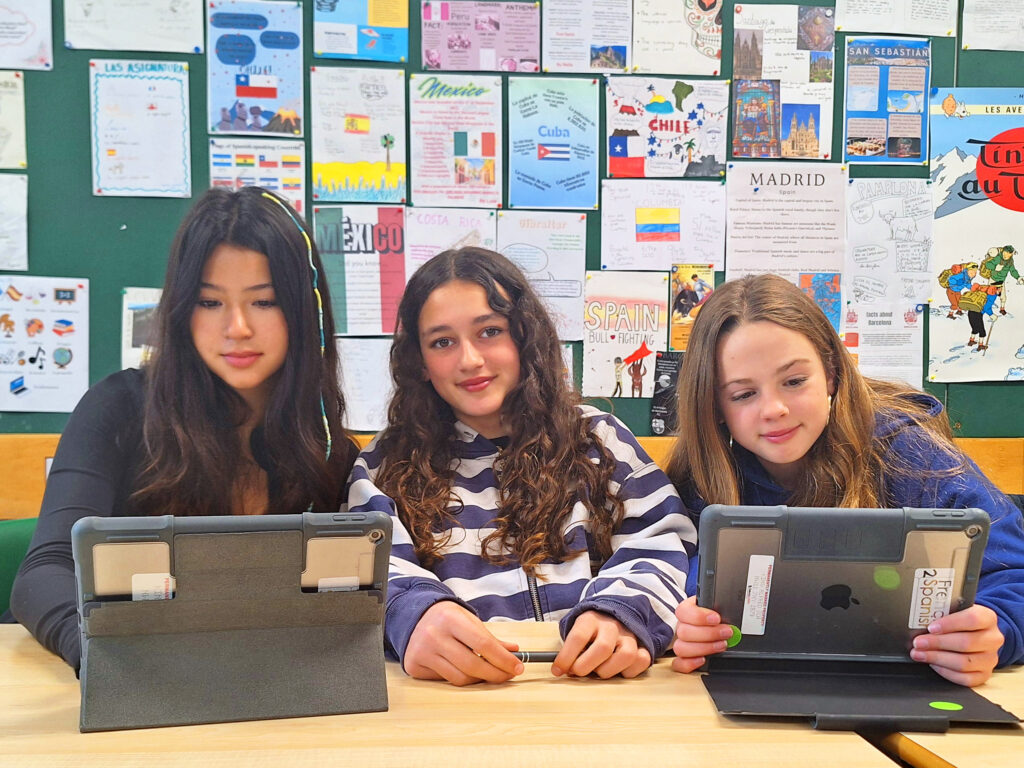
Real-world themes
Students’ experience is further enriched by framing language learning in the context of relevant real-world themes and issues.
For example, whilst considering social justice and popular uprisings in Spain and Latin America, Year 13 students recently discussed the case of Pablo Hasél, the Spanish rapper who was jailed in 2021 after criticising the Spanish monarchy – in particular, former king Juan Carlos – in his songs.
“We prompt pupils to explore and critically evaluate social issues, examining themes such as democracy, freedom of expression, and the extent to which these ideals are upheld in Spanish-speaking societies,” shares Camilla.
Véronique adds: “In Years 7 & 8, students learn about what a typical school day looks like in France, which opens up a conversation about the similarities and differences with their own lives. It helps to give them a sense of appreciation of the community they are part of.”
Opportunities for immersion
Residential trip
In Year 10, students can enjoy our annual residential trip abroad, which immerses them in their chosen language for a week. This year, Spanish students will travel to San Sebastián, whilst those studying French will visit Lyon.
During these trips, groups of two or three students live with a local family, immersing them not only in their hosts’ mother tongue, but also in their daily lives. “Experiencing how other people live and adapting to that is fantastic for building resilience,” says Camilla.
Students also attend a local language school, honing their speaking, writing and listening skills in daily 3.5-hour sessions. The rest of their time is spent enjoying cultural highlights, such as museum visits, cooking lessons and surfing lessons – all delivered in the local language.
Independent exploration of the city (and interaction with its residents) is also encouraged. “On last year’s trip, we gave the students €10 each and a list of specific pintxos (tapas dishes) that they had to order in local cafes, taking pictures as evidence,” says Camilla. “Activities such as this allow students to put their language skills to the test in an authentic situation, which truly amplifies their learning.”
Fortnightly debates
Sixth Form students hold fortnightly break-time debates conducted entirely in Spanish and French, allowing them to develop their speaking skills and knowledge of broader subjects, such as History and Politics.
For example, Year 13s recently debated the immigration of Latin Americans to the United States, including the potential perils of the journey and the exploitation many suffer.
Other co-curricular activities
French Drama Festival
Our annual French Drama Festival sees schools from around the country compete in seven categories, allowing students to give their language learning a creative outlet.
The festival has become a highlight of the school calendar since its founding by former KAS teacher Pauline Moloney in 2015. Since then, the event’s reputation has grown significantly, and it is now even on the radar of university interview tutors at Oxford and Cambridge.
Educational day trips
MFL students can also take advantage of enriching outings. Last December, for example, Sixth Form students enjoyed a study day at the BFI Southbank. They explored the life and work of poet Federico García Lorca, author of La Casa De Bernarda Alba, a play they are studying for Spanish A level.
“It’s about honour, oppression, power, tradition, the restrictions imposed on women,” shares Camilla. “These themes spoke to the students. The play dates back to 1936, but they were able to draw parallels with present-day events around the globe.”
Learn more about life in Lower School, Upper School and Sixth Form at The King Alfred School.


